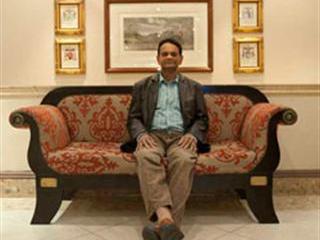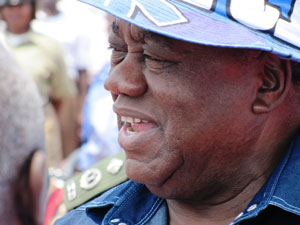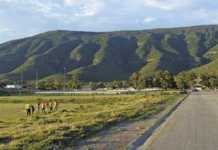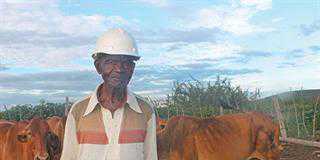
That’s when the SADC heads of state meet at a summit in Maputo, Mozambique, to decide on the SADC Tribunal’s future role, especially its human rights jurisdiction. A recent press statement from former Zimbabwe farmer-turned-activist Ben Freeth (founder of the SADC Tribunal Rights Watch) recaps the function of the Tribunal and the story of how it’s been neutered:
“The SADC Tribunal was set up as an independent legal body to ensure that every country within SADC respected and conformed to the principles and objectives enshrined in the SADC Treaty of 1992, notably: peace, security and solidarity; human rights; democracy; the rule of law; equality; the peaceful settlement of disputes.
“The Tribunal had exclusive jurisdiction where member states had disputes with SADC or its institutions. It also provided SADC citizens with a platform to seek justice and hold their governments to account when their human rights had been infringed upon and local legal remedies had been exhausted.
“From 2007, the Tribunal ruled on 20 cases that included disputes between citizens and their governments, as well as cases between companies and governments. The majority involved Zimbabwe citizens (farmers) taking the Zimbabwe government to court.
“In December 2010, in their judgment on the Gondo case, the Tribunal ordered the Zimbabwe government to pay US$17 million compensation to nine victims of organised violence and torture perpetrated by the army and police.
“The victims had suffered bullet wounds, beatings and even paralysis as a result of the physical violence at the hands of the police and soldiers.
“Two years earlier, in November 2008, the Tribunal had ruled that President Mugabe’s land reform programme was both illegal and racist. Following intensive lobbying by the Zimbabwe government, the SADC heads of state suspended the Tribunal in August 2011 and there is widespread concern that they will decide at the Maputo summit to remove the Court’s human rights jurisdiction.

Rupiah Banda
“The proposal to remove the Tribunal’s human rights mandate is contained in a draft amendment to the SADC Protocol, which was adopted by SADC ministers of justice in Angola during June.”
High-handed and imperious
Ben Freeth was one of the Zimbabwe farmers who took the Zim government to the SADC Tribunal, and some might think him biased, but in 2011 I did an exclusive interview with the former president of the SADC Tribunal, Ariranga Pillay a former Mauritius chief justice.
He described the 19 May 2011 decision of the SADC council of ministers to ‘kill off’ the existing Tribunal by suspending all its activities and to not reappoint its judges, as “a bolt from the blue”, as being “high-handed and imperious” and “worthy of potentates and kings who can do no wrong, and who are not accountable for their actions.”
Pillay, who “used to sit at the high table with the SADC heads of state and the council of ministers”, felt that they “had failed to process all the implications of a SADC Tribunal” and that, initially, the Tribunal had merely been a gambit “to get funds from the EU and others.”
Pillay reckoned “the scales fell from their eyes” when the SADC leaders read the final report by the external consultant, University of Cambridge professor Lorend Bartels, who was commissioned to review the role, responsibilities and terms of reference of the Tribunal.
“Bartels explained that the SADC Treaty, signed by all member states, has the status of international law, and that ‘under international law, a state may not rely on its national laws, including norms of constitutional status, as a defence to a violation of an international obligation’,” said Pillay. “That gave them a fright,” he continued. “I think that they felt then that they had created a monster and they started backtracking.”
Pie in the sky
SADC is a regional bloc of 15 nations which professes to follow a vision of “a common future, a future within a regional community that will ensure economic well-being, improvement of the standards of living and quality of life, freedom and social justice and peace and security for the people of Southern Africa,” explained Pillay.
What makes this vision completely pie-in-the-sky is the fact that half of the members are political elites, the very worst guarantors of “quality of life, freedom and social justice and peace and security,” he added.
Some of the member states with strong armies, like Zimbabwe, are run by outright autocrats like Robert Mugabe. Others are run by coup d’état-installed upstarts, like Madagascar’s Andry Rajoelina. In short there has simply never been enough will in the region to make men like these accountable to a regional court.
And yet all member states ratified the SADC Protocol, which legally obligates the heads of state to do just that. This double-bind means the heads of state and the SADC ministers have never been able to give an answer to activists and journalists who have repeatedly asked why the Tribunal was suspended.
The strategy has been to remain silent. In 2011, I spent a few days on the campaign trail with former Zambian president Rupiah Banda, a kind, grandfatherly man, who was also on the verge of being voted out of power because his reign had been characterised by nepotism and corruption.
Banda was open about a number of things, like why Africa’s leaders had distrusted Gadaffi, and why Botswana was considered the regional outsider by SADC’s leaders. When it came to discussing the suspension of the SADC Tribunal he said, “It’s a difficult one to answer at this stage, but you know what, everyone is entitled to human rights, even the ruling elites themselves are entitled to their share.
“When NGO’s take the position that human rights have been sacrificed by ruling elites they fail to talk about the fact that they are awash with money from other people who believe in the NGO system, which is a western system…”
Banda faltered at this point and, deciding it was perhaps wiser not to pursue his argument, said: “Actually, I can’t talk about this.”
So, all things considered, I for one believe the human rights mandate of the SADC Tribunal will be history by 18 August when the SADC Heads of State Summit concludes. That said, the campaign to save the Tribunal received a shot in the arm when Desmond Tutu recently chose to add his support to it.
You can watch him outlining his position on the matter in the following videos:
* 10-minute film: http://www.youtube.com/watch?v=jXQjqqBv4tE&feature=youtu.be
* 3-minute film: http://www.youtube.com/watch?v=rm2BgeKSMZo&feature=youtu.be
You might also be interested in signing the ‘Save the Tribunal Petition’, which can be found at:
http://www.change.org/en-GB/petitions/save-the-sadc-tribunal













